Working to make Juju more accessible
Joseph Williams
on 20 October 2016
Tags: Design
In the middle of July the Juju team got together to work towards making Juju more accessible. For now the aim was to reach Level AA compliant, with the intention of reaching AAA in the future.
We started by reading through the W3C accessibility guidelines and distilling each principle into sentences that made sense to us as a team and documenting this into a spreadsheet.
We then created separate columns as to how this would affect the main areas across Juju as a product. Namely static pages on jujucharms.com, the GUI and the inspector element within the GUI.
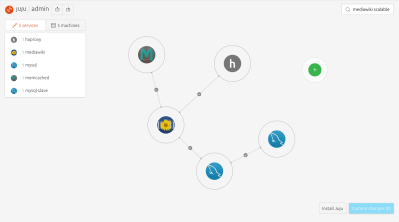
GUI live on jujucharms.com
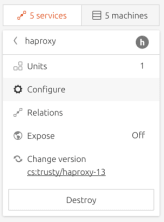
Inspector within the GUI
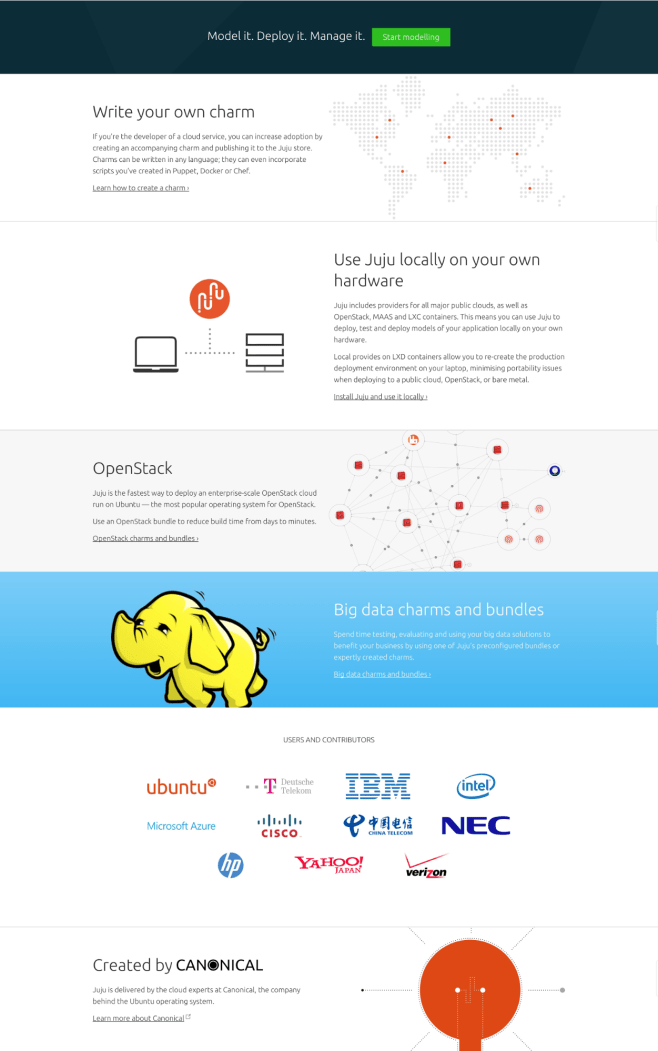
Example of static page content from the homepage
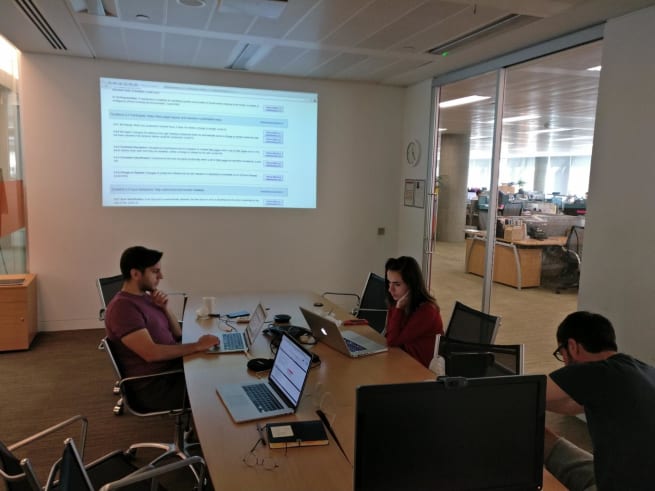
The Juju team working through the accessibility guidelines
Tackling this as a team meant that we were all on the same page as to which areas of the Juju GUI were affected by not being AA compliant and how we could work to improve it.
We also discussed the amount of design effort needed for each of the areas that isn’t AA compliant and how long we thought it would take to make improvements.
You can have a look at the spreadsheet we created to help us track the changes that we need to make to Juju to make more accessible:
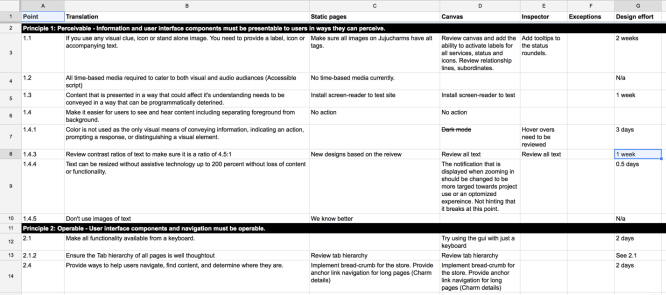
Spreadsheet created to track changes and improvements needed to be done
This workflow has helped us manage and scope the tasks ahead and clear up uncertainties that we had about which tasks done or which requirements need to be met to achieve the level of accessibility we are aiming for.
Talk to us today
Interested in running Ubuntu in your organisation?
Newsletter signup
Related posts
From inspiration to impact: design students from Regent’s University London explore open design for their dissertation projects
Last year, we had the opportunity to speak at Regent’s UX Conference (Regent’s University London’s conference to showcase UX work by staff, students, and...
Showcasing open design in action: Loughborough University design students explore open source projects
Last year, we collaborated with two design student teams from Loughborough University in the UK. These students were challenged to work on open source project...
Design and Documentation clinics at FOSDEM Fringe 2026
FOSDEM is one of the biggest and most exciting open source events of the year, held at the Solbosch campus of the Université Libre de Bruxelles (Brussels),...
